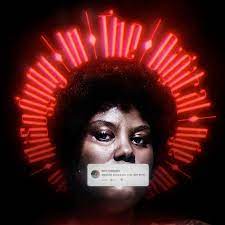
When: Thursday, November 2, 2023
7:00 p.m. Panel & Discussion
Reception to follow
Where: California NanoSystems Institute (CNSI)
UCLA Campus
Warning: This video contains adult content and graphic language, and is not suitable for children.
UCLA Division of Social Sciences and UCLA School of Theatre, Film and Television invite you to attend a special screening of Backlash: Misogyny in the Digital Age followed by a panel discussion featuring:
Guylaine Maroist
President, Producer, Screenwriter, and Director, La Ruelle Films
Kiah Morris
Former Vermont State Representative
Sarah Roberts
Faculty Director, UCLA Center for Critical Internet Inquiry
Associate Professor, UCLA Department of Gender Studies
Moderated by
Kristy Guevara-Flanagan
Professor of Documentary Film, UCLA Department of Film, Television and Digital Media
With a panel introduction by
Safiya Noble
Interim Director, UCLA DataX Initiative
Founder and Director, UCLA Center on Race and Digital Justice
Film Synopsis: In fall 2017, the MeToo hashtag shook the planet, sparking an unprecedented wave of sexual assault accusations in the Western world. Today, the storm of virulent misogyny is raging on, flooding our screens with harassment, defamation, lynching, sextortion, the sharing of intimate photographs, rape and death threats. According to the UN, 73% of women are abused online.
This feature-length documentary follows four women and one man whose lives have been ransacked by online violence: Laura Boldrini, the most harassed female politician in Italy; Kiah Morris, an African-American politician in the state of Vermont who resigned following severe harassment and threats from rightwing extremists; Marion Séclin, a French YouTuber who received more than 40,000 sexist messages, including rape and death threats; Laurence Gratton, a young teacher in Quebec who was harassed for more than five years by a former colleague; and Glen Canning, the father of Rehtaeh Parsons, a young girl who took her own life after photos of her rape were spread online.
What is it like to live with this so-called virtual violence? That’s what this opus aims to show by closely following the victims in their daily lives. As in a horror movie, we witness in real time the waves of hate that assail them, the fear that invades their private lives, and the loss of their sense of security in public spaces. Their lives are marred by a loss of confidence, and by shame.
Backlash: Misogyny in the Digital Age also shows how each of these women, and this man speaking in his late daughter’s name, are waging the same battle. They share a common cause: refusing to be silenced. Their journeys intertwine. They demand widespread accountability from those who allow the propagation of such hatred, whether it be the tech giants, the state, or the perpetrators themselves. Why this unrelenting and systematic discrimination against women? Can we leave the screen now and shift the age-old paradigm?




